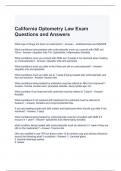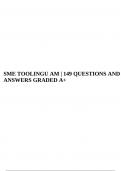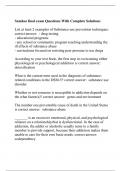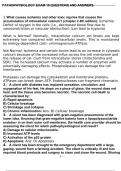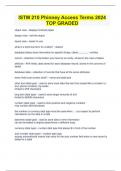Exam (elaborations)
COMM 1500 UGA Exam 2 Questions With Revised Answers
- Course
- Institution
COMM 1500 UGA Exam 2 Questions With Revised Answers Hearing - answerthe sensory process of taking in and interpreting sound Listening - answerthe five-stage process of receiving, attending to, understanding, responding to, and recalling sounds and visual images during interpersonal encounters ...
[Show more]




